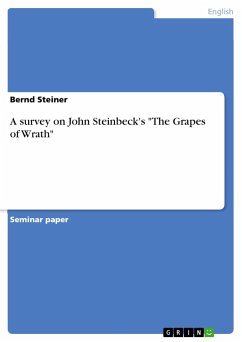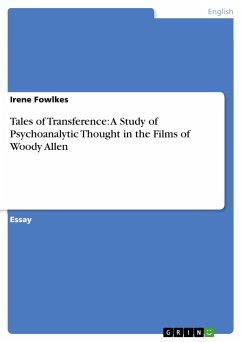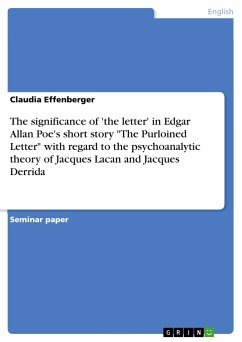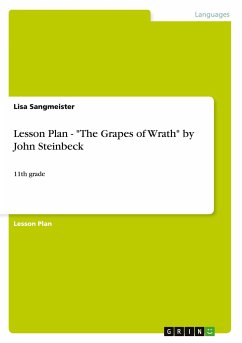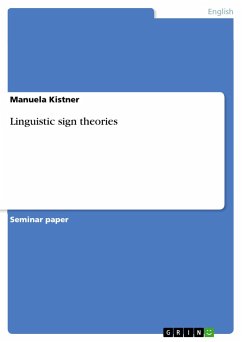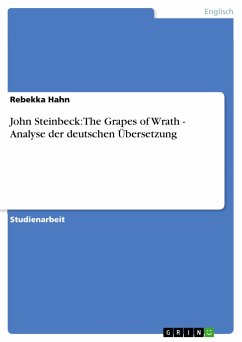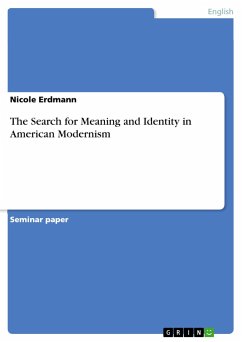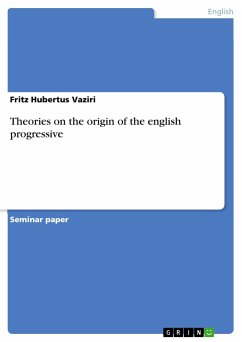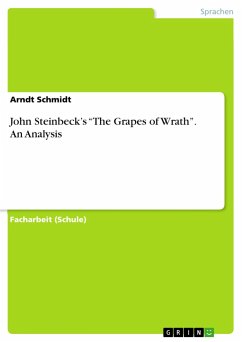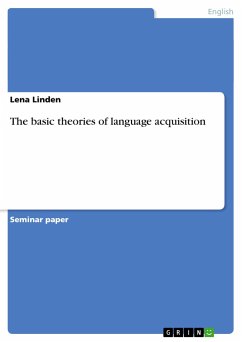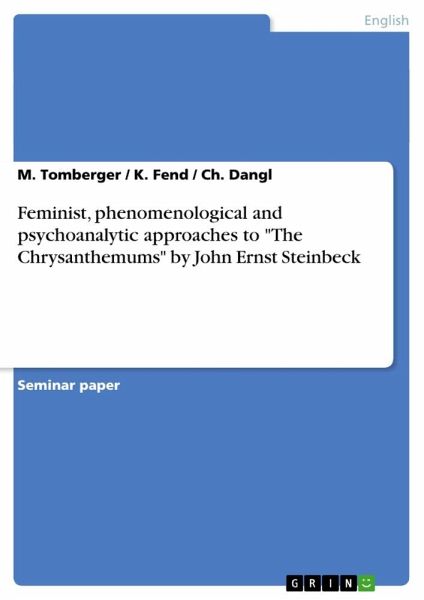
Feminist, phenomenological and psychoanalytic approaches to "The Chrysanthemums" by John Ernst Steinbeck

PAYBACK Punkte
0 °P sammeln!
Seminar paper from the year 1997 in the subject American Studies - Literature, grade: very good, University of Vienna (Anglistics/American Studies), course: Linguistic Seminar: Applications of Theories of Discourse, language: English, abstract: According to Norman Holland, a story deals with the author, the author's relationship to his work or what he creates. In Holland's opinion texts contain autobiographical elements, or are totally autobiographical. In the case of The Chrysanthemums this is not true, although there are at least some biographical elements in the story. Elisa Allen, the main...
Seminar paper from the year 1997 in the subject American Studies - Literature, grade: very good, University of Vienna (Anglistics/American Studies), course: Linguistic Seminar: Applications of Theories of Discourse, language: English, abstract: According to Norman Holland, a story deals with the author, the author's relationship to his work or what he creates. In Holland's opinion texts contain autobiographical elements, or are totally autobiographical. In the case of The Chrysanthemums this is not true, although there are at least some biographical elements in the story. Elisa Allen, the main character, has been suggested to be Steinbeck's second wife Carol, because of the description of her outward appearance (bulky figure, strong, energetic, ...). Additionally, the Steinbecks, like the Allens in the story, had no children at the time the story was written. Owing to the fact that these elements are not significant to the story itself, they are neglected in our interpretation. However, the short story 'The Chrysanthemums' does not tie the reader down to a certain interpretation. A psychoanalytical approach appears as practicable as a feminist or a phenomenological one. The central theme in the story is Elisa's frustration. She is the main character, the reader's attention is focused on her throughout the story. In our analysis the reasons for her development as well as the source of her frustration, the different symbolisms and metaphors will be discussed from several perspectives. In the phenomenological approach we can see to what extent the reader influences the text - an explanation for the feminist and psychological approaches following on. In the feminist approach we will mostly focus on Elisa's character as her behavior gives indications of her frustration: Elisa is forced to play a role, which is determined by her gender. This role strongly influences her sense of identity and her behavior; moreover, it gives rise to her conflict and frustration.The psychoanalytic approach also concentrates on Elisa, for she is the main character and the other characters are closely connected with her. And it is the three of them that form the reader's psychological background.




